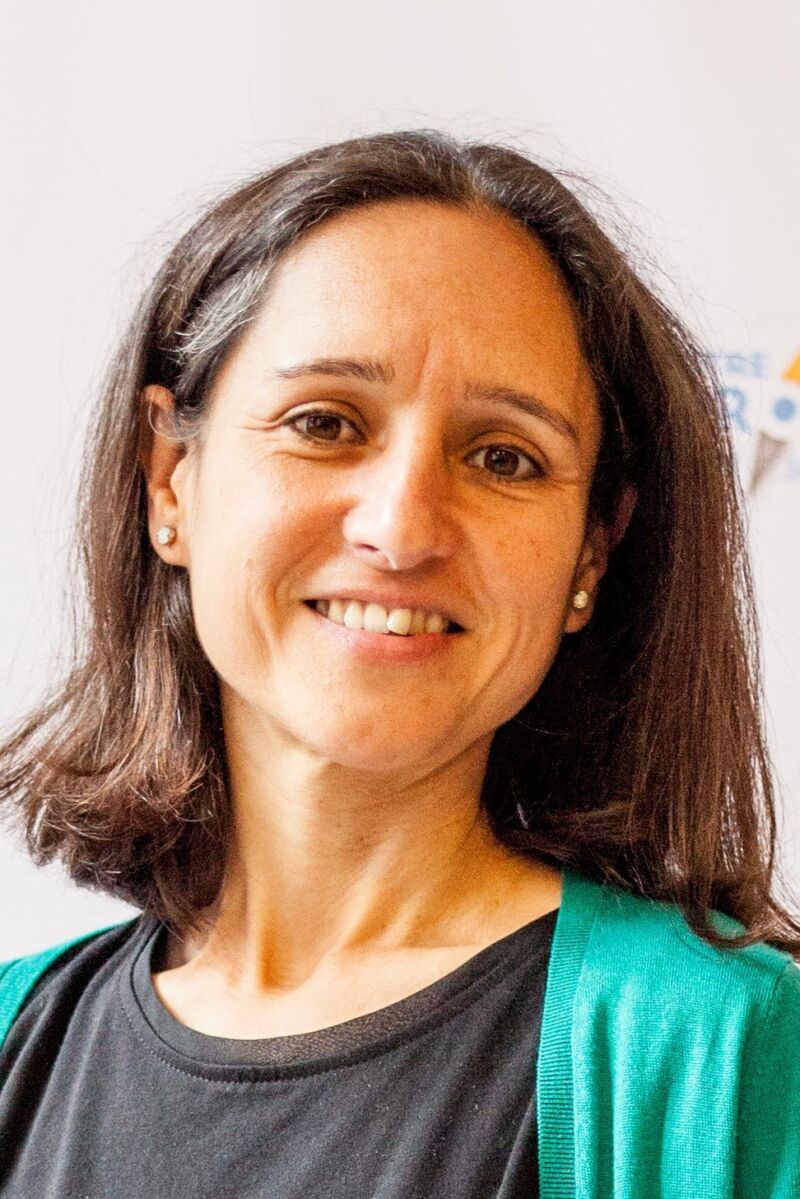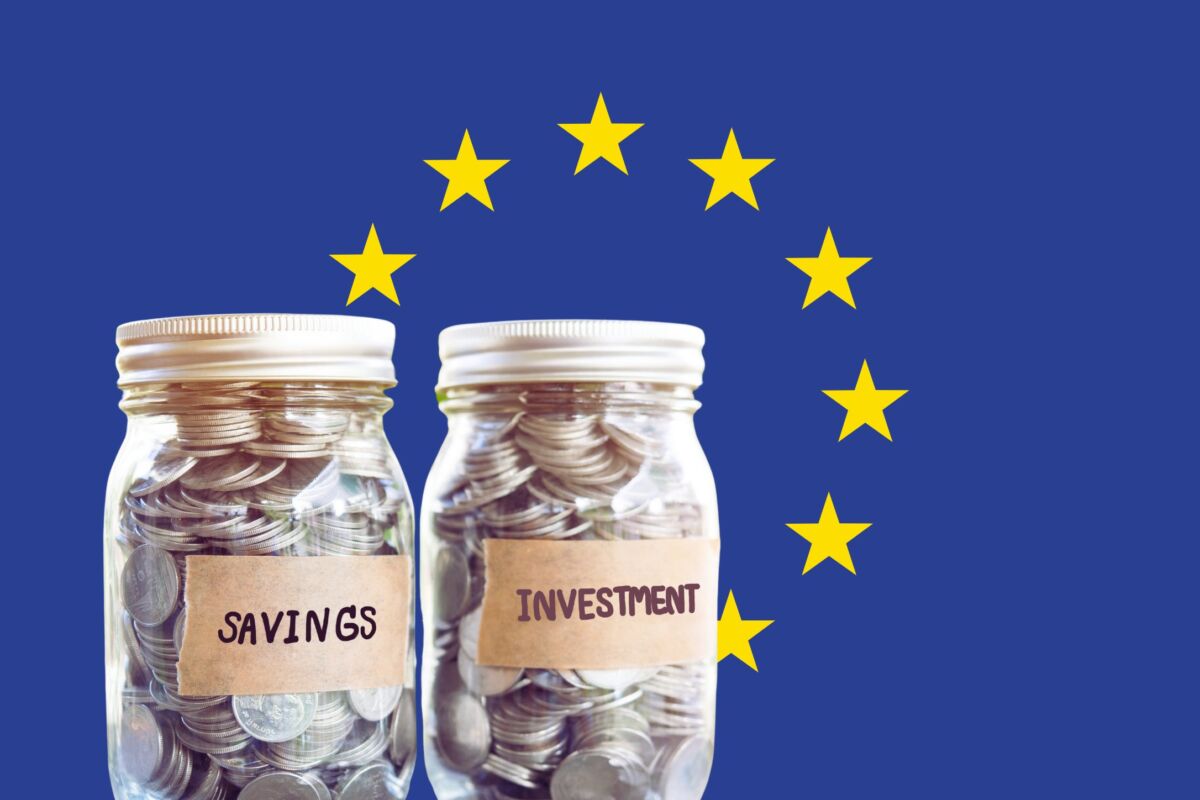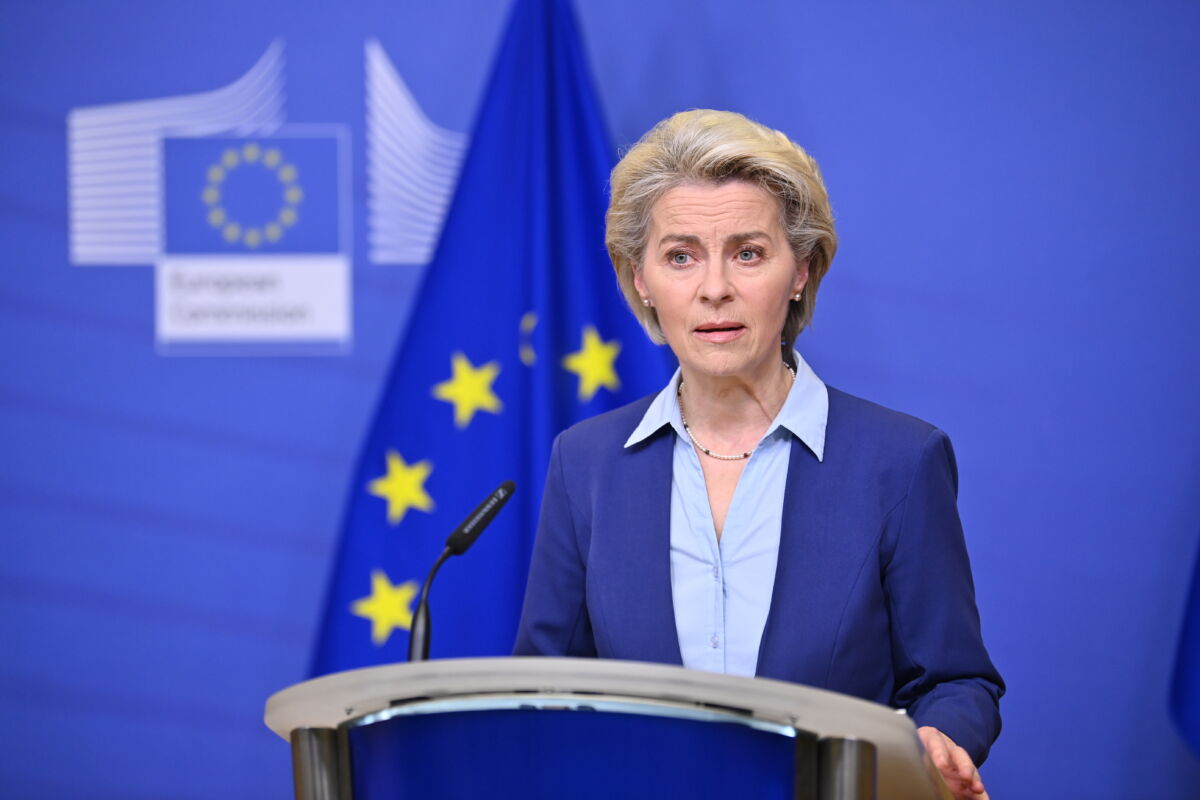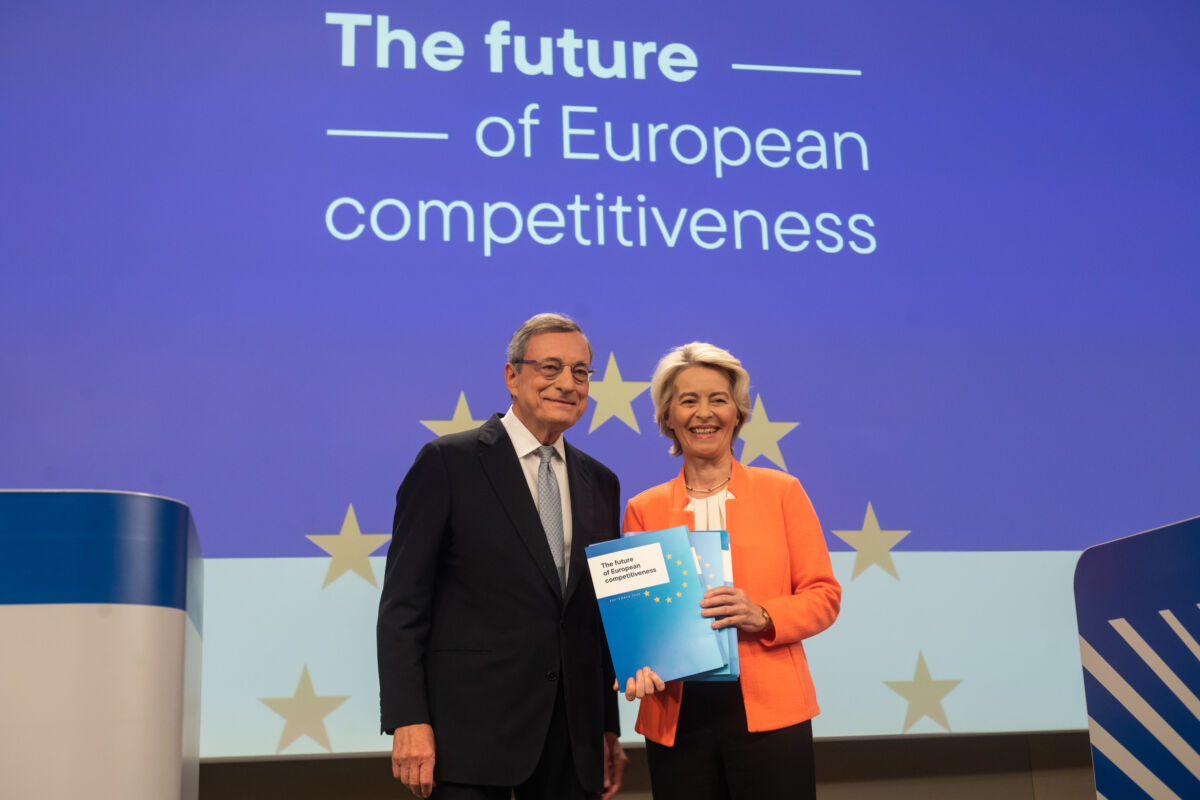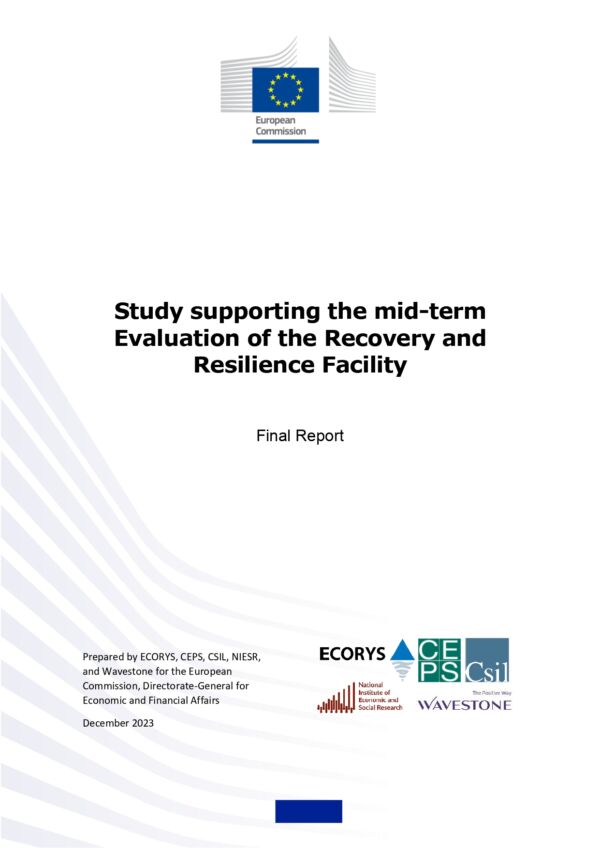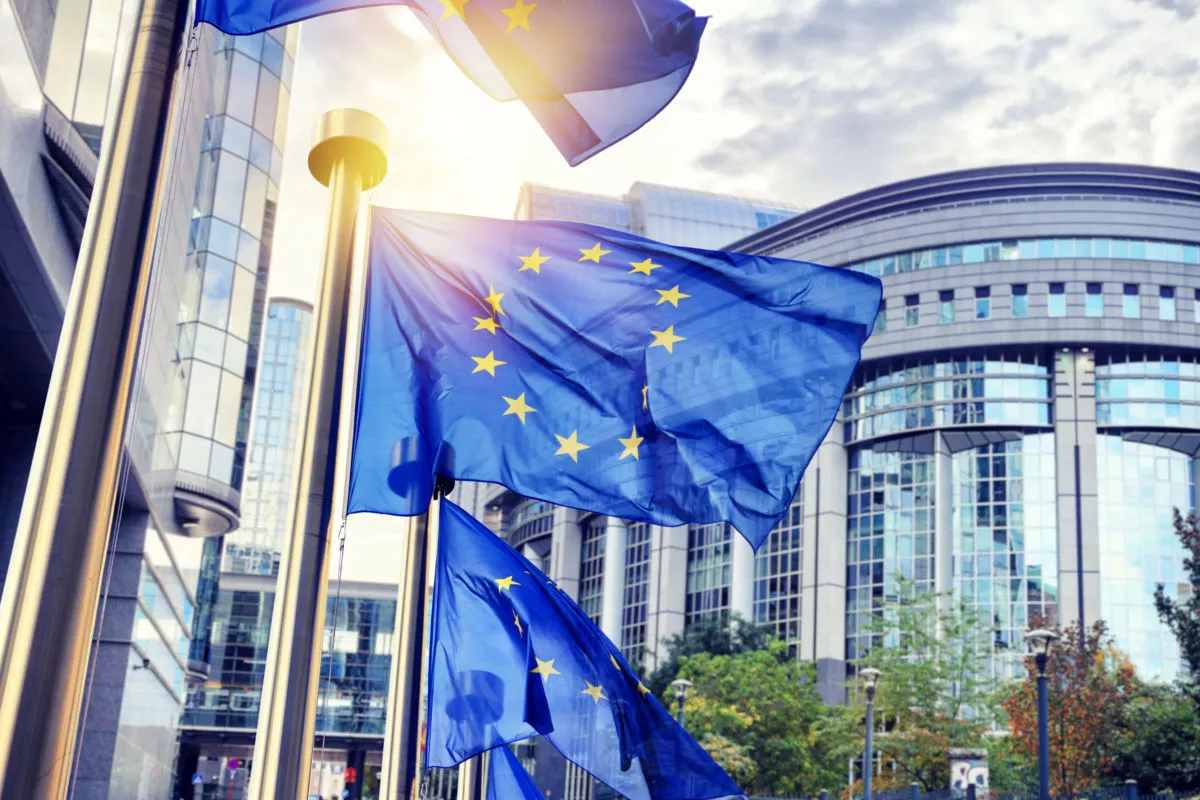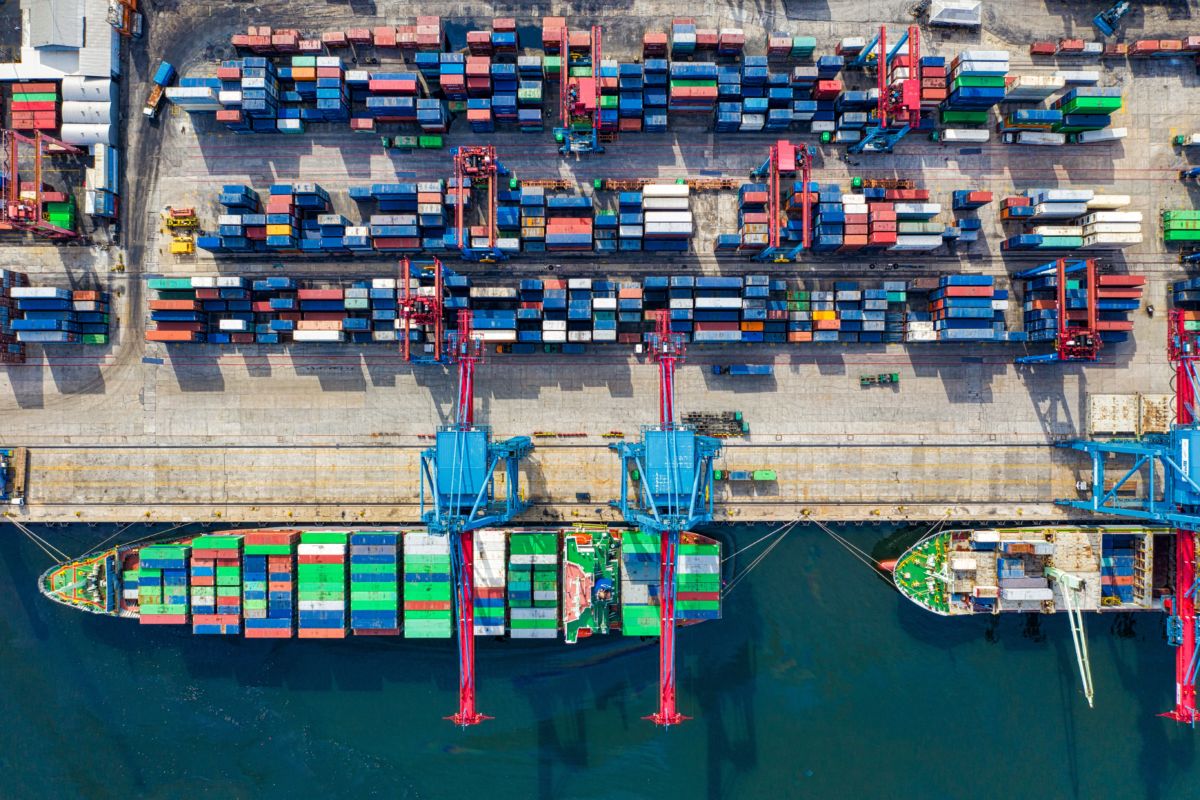- Home
- Research
- CEPS Topics
- CEPS Topics
- CEPS Topics
- CEPS Units
- Publications
- Events
- Activities
- Overview
- Programmes
- Membership
- Expert commentaries
Economic and monetary affairs
CEPS Staff involved
Next is the list of our inhouse experts working on this topic.
Dr. Cinzia Alcidi is Senior Research Fellow at the Centre for European Policy Studies (CEPS)…
Caterina Astarita is Associate Research Fellow in the Jobs and Skills Unit at CEPS. She…
Harry Crichton-Miller is a Research Assistant in the Economic Policy unit at CEPS.
Daniel Gros is a Member of the Board and Distinguished Fellow at the Centre for…
Eulalia Rubio is Associate Senior Research Fellow in the Economic Policy unity at CEPS. In…
Related Events
Here are the latest events related to this topic.
In-person event is over
Rising to the challenge: Europe’s path to growth and resilience
Economic and monetary affairs
When
Where
This in-person event is free and open to the public but registration is mandatory.
When
Where
This in-person event is free and open to the public but registration is mandatory.
Members-only webinar is over
US tariffs and the EU response – what’s at stake?
Economic and monetary affairs
When
Participation in this event is exclusive to CEPS members. If you are part of a member organisation and wish to participate, please contact [email protected]
In-person event is over
20 years later – a new roadmap for revitalising Turkey-EU relations
Foreign and security policy,Economic and monetary affairs,Energy, climate change and the environment
When
Where
This in-person event is free and open to the public but registration is mandatory.
Webinar is over
EU Payments Observatory: The surge in late payments: an increasing barrier for EU companies
Economic and monetary affairs
When
This webinar is free and open to the public but registration is mandatory.
In-person event is over
Strengthening EU competitiveness: what role for the next MFF?
Economic and monetary affairs
When
Where
Registrations for this event have been closed due to full capacity.
In-person event is over
A new compass for competitive sustainability, wellbeing and prosperity
Economic and monetary affairs
When
Where
This in-person event is free and open to the public but registration is mandatory.
In-person event is over
EU competitiveness: navigating challenges and seizing opportunities
Economic and monetary affairs
When
Where
This in-person event is free and open to the public but registration is mandatory.
Online Conference is over
EU Payments Observatory: Turning the tide on late payments
Finance,Economic and monetary affairs
When
This online event is free and open to the public but registration is mandatory.
In-person event is over
EU cohesion policy post-2027: why and how to enhance flexibility
Economic and monetary affairs
When
Where
This in-person event is free and open to the public but registration is mandatory.
In-person event is over
Implementing the InvestEU Programme: achievements and the way forward
Economic and monetary affairs
When
Where
This in-person event is free and open to the public but registration is mandatory.
Member-only Event is over
Geo-economics and the risks of economic fragmentation: Implications for the EU and its capital market
Finance,Economic and monetary affairs
When
Where
This event is exclusive to ECMI, ECRI and CEPS members. If you wish to participate, please contact [email protected]
Webinar is over
EU Payments Observatory: Presentation of Report on Enforcement Measures
Economic and monetary affairs
When
In-person event is over
Escaping the middle-income trap: pathways to success
Economic and monetary affairs
When
Where
This in-person event is free and open to the public but registration is mandatory.
In-person event is over
From “cost” to “performance”: which lessons to take from the Recovery and Resilience Facility?
Economic and monetary affairs
When
Where
This in-person event is free and open to the public but registration is mandatory.
In-person event is over
BFORE Final Conference
Employment, social affairs and inclusion,Economic and monetary affairs
When
Where
This event is free and open to the public, but you must register to gain access to the meeting.
Conference is over
Intereconomics Annual Conference: The Future of EU Public Finances
Economic and monetary affairs
When
Where
This event is free and open to the public, but you must register to gain access to the meeting.
Conference is over
A common green horizon: Exploiting the full potential of the EU-Morocco Green Partnership
Economic and monetary affairs,Energy, climate change and the environment
When
Where
This in-person event is free and open to the public but registration is mandatory.
Conference is over
Social Investments for resilient economies and societies: EU fiscal rules fit for future
Employment, social affairs and inclusion,Economic and monetary affairs
When
Where
This in-person event is free and open to the public but registration is mandatory.
In-person event is over
Implementation and usability of the EU Taxonomy: What can the EU Platform on Sustainable Finance do?
Economic and monetary affairs
When
Where
This event is free and open to the public, but you must register to gain access to the meeting.
Hybrid Event is over
Bank Regulation and Crisis Management in an Era of Recurrent Crises
Economic and monetary affairs
When
Where
This event is free and open to the public, but you must register to gain access to the meeting.
In-person event is over
From economic integration to geopolitical vulnerability? The search for EU strategic autonomy
Economic and monetary affairs
When
Where
This in-person event is free and open to the public but registration is mandatory.
In-person event is over
Public pension systems: changing narratives, changing realities ?
Economic and monetary affairs
When
Where
This in-person event is free and open to the public but registration is mandatory.
In-person event is over
Investing in the future of Europe: InvestEU and the role of National Promotional Institutions
Economic and monetary affairs
When
Where
This in-person event is free and open to the public but registration is mandatory.
Online Conference is over
Intereconomics Annual Conference: De-Globalisation – A New World Order?
Economic and monetary affairs
When
This webinar will take place via ZOOM and is free and open to the public, but registration is mandatory. Once registered, you will receive instructions on how to join this event.
Webinar is over
A financial architecture fit for the EU
Economic and monetary affairs,Energy, climate change and the environment,Foreign and security policy
When
This webinar will take place via ZOOM and is free and open to the public, but registration is mandatory. Once registered, you will receive instructions on how to join this event.
Webinar is over
EU-Africa Partnership: What Next? Towards an African Stability Mechanism
Economic and monetary affairs
When
This webinar will take place via ZOOM and is free and open to the public, but registration is mandatory. Once registered, you will receive instructions on how to join this event.
Webinar is over
Rethinking the growth paradigm: Capitalism, inequality and climate change
Economic and monetary affairs,Energy, climate change and the environment
When
This webinar will take place via ZOOM and is free and open to the public, but registration is mandatory. Once registered, you will receive instructions on how to join this event.
Hybrid Event is over
Implementing the National Recovery and Resilience Plans
Economic and monetary affairs
When
Where
This hybrid event is free and open to the public but registration is mandatory. Once registered, you will receive instructions on how to join this event virtually.
When
Where
The event will take place in CEPS premises and for members-only.
When
This webinar will take place via ZOOM and is free and open to the public, but registration is mandatory. Once registered, you will receive instructions on how to join this event.
Webinar is over
In conversation with Governor Wunsch | Greening of monetary policy and inflation
Economic and monetary affairs
When
This is a by-invitation only webinar aimed at Chief Economists from commercial and central banks, as well as other financial institutions. You can reach out to [email protected] to learn more.
Member-only webinar is over
Presentation of CEPS Research Agenda
Finance,Migration, asylum and borders,Economic and monetary affairs,Energy, climate change and the environment,Foreign and security policy,Priorities 2019-2024
When
This session is strictly reserved to members and will be run in Zoom, you must register in advance to gain access to the meeting and the details to join will be sent one hour prior of the event.
Webinar is over
Will central banks succeed in the digital currencies market?
Finance,Economic and monetary affairs
When
This event will take place via ZOOM and is free and open to the public, but registration is mandatory. Once registered, you will receive instructions on how to join this event.
When
This event will take place via ZOOM and is free and open to the public, but registration is mandatory. Once registered, you will receive instructions on how to join this event.
Webinar is over
Economic Governance Review: What rules for the post-pandemic environment?
Finance,Economic and monetary affairs
When
This event will take place via ZOOM and is free and open to the public, but registration is mandatory. Once registered, you will receive instructions on how to join this event.
Webinar is over
CEPS/Intereconomics conference: Redesigning EU Fiscal Rules after COVID-19
Economic and monetary affairs
When
When
This event will take place via ZOOM and is free and open to the public, but registration is mandatory. Once registered, you will receive instructions on how to join this event.
When
This event will take place via ZOOM and is free and open to the public, but registration is mandatory. Once registered, you will receive instructions on how to join this event.
Webinar is over
Risk-sharing in monetary unions: The role of federal fiscal policy and capital markets
Economic and monetary affairs
When
This event will take place via ZOOM and is free and open to the public, but registration is mandatory. Once registered, you will receive instructions on how to join this event.
Webinar is over
Tackling dirty money: A closer look at AML supervision in the EU
Economic and monetary affairs
When
Webinar is over
Will corporate insolvencies jeopardize financial stability in the euro area?
Economic and monetary affairs
When
Task Force Meeting is over
Launch of the Task Force on the New Industrial Strategy for Europe
Agriculture, food security, rural and regional development,Finance,AI, digitalisation and innovation,Economic and monetary affairs,Employment, social affairs and inclusion,Energy, climate change and the environment,Human rights and justice,Taxation,Trade,Health
When
When
When
Where
Participation in this event is exceptionally free of charge.
When
Where
When
Where
Free participation in our meetings is a benefit of CEPS membership. Non-members may be admitted for Euro 50, paid in cash at registration. Representatives from the European institutions (Commission – Parliament – Council – EEAS – Committee of the Regions - CESE) & members of the press benefit from free entrance, too. A sandwich lunch will be served from 12.30 onwards.
When
Where
Participation in this event is exceptionally free of charge. A sandwich lunch will be served from 12.30 onwards.
Breakfast Meeting is over
Beyond Debt and Deficits
Economic and monetary affairs,EU budget and public investment
When
Participation in this event is free of charge. Registration is required.
Lunch Time Meeting is over
Hard Brexit: should we care?
Economic and monetary affairs,EU institutions and policymaking
When
Where
Participation in this event is exceptionally free of charge. A sandwich lunch will be served from 12.30 onwards.
When
Where
Participation in this event is exceptionally free of charge.
When
When
Where
Fees*Standard rate: €2,000CEPS Member rate (CEPS Corporate, Institutional** and Individual Members): €1,200Students, Academics, EU officials: €600
Debate is over
Future of Europe
EU institutions and policymaking,Finance,Economic and monetary affairs
When
Where
Free participation in our meetings is a benefit of CEPS membership. Non-members may be admitted for Euro 50, paid in cash at registration. Representatives from the European institutions (Commission – Parliament – Council – EEAS – Committee of the Regions - CESE) & members of the press benefit from free entrance, too. A sandwich lunch will be served from 12.30 onwards.
When
Where
Free participation in our meetings is a benefit of CEPS membership. Non-members may be admitted for Euro 50, paid in cash at registration. Representatives from the European institutions (Commission – Parliament – Council – EEAS – Committee of the Regions - CESE) & members of the press benefit from free entrance, too. A sandwich lunch will be served from 12.30 onwards.
When
Where
Free participation in our meetings is a benefit of CEPS membership. Non-members may be admitted for Euro 50, paid in cash at registration. Representatives from the European institutions (Commission – Parliament – Council – EEAS – Committee of the Regions - CESE) & members of the press benefit from free entrance, too. A sandwich lunch will be served from 12.30 onwards.
When
Where
Free participation in our meetings is a benefit of CEPS membership. Non-members may be admitted for Euro 50, paid in cash at registration. Representatives from the European institutions (Commission – Parliament – Council – EEAS – Committee of the Regions - CESE) & members of the press benefit from free entrance, too. A sandwich lunch will be served from 12.30 onwards.
When
Where
Free participation in our meetings is a benefit of CEPS membership. Non-members may be admitted for Euro 50, paid in cash at registration. Representatives from the European institutions (Commission – Parliament – Council – EEAS – Committee of the Regions - CESE) & members of the press benefit from free entrance, too. A sandwich lunch will be served from 12.30 onwards.
Lunch Time Meeting is over
CEPS-IMF Spring 2018 Regional Economic Outlook
Economic and monetary affairs
When
Where
Participation in this event is exceptionally free of charge. A sandwich lunch will be served from 12.30 onwards.
Conference is over
Prospects for the Russian economy in an election year
Trade,Economic and monetary affairs
When
Where
Participation in this event is exceptionally free of charge. A sandwich lunch will be served from 12.30 onwards.
Conference is over
Inequality and Poverty Across Generations in Europe
Economic and monetary affairs
When
Where
The participation at this event is exceptionally free of charge.
Lunch Time Meeting is over
Fiscal federalism and redistribution across regions
Economic and monetary affairs
When
Where
Participation in this event is free of charge.
Lunch Time Meeting is over
Harnessing Tailwinds for Strengthening the Euro Area
Economic and monetary affairs
When
Where
Participation in this event is free of charge.
When
Where
Participation in this event is exceptionally free of charge.
When
Where
Participation in this event is exceptionally free of charge. A sandwich lunch will be served from 12.30 onwards.
When
Where
When
Where
Free participation in our meetings is a benefit of CEPS membership. Non-members may be admitted for Euro 50, paid in cash at registration. Representatives from the European institutions (Commission – Parliament – Council – EEAS – Committee of the Regions - CESE) & members of the press benefit from free entrance, too. A sandwich lunch will be served from 12.30 onwards.
When
Where
Fee* €600 for students, academics and EU officials €1,200 for CEPS members (corporate and institutional) €2,000 for all others *All fees are subject to VAT (applied at the current Belgian rate of 21%). Fees include all teaching and lunch from Monday to Saturday. The fees do not include travel costs or accommodation.
Related Expert commentaries
Here are the latest items related to this topic.
Donald Trump’s ‘Liberation Day’ has delivered the highest tariff hike in nearly a century. If they’re implemented, the average US…
We’re undergoing a global transformation marked by competition for resources, value chain shifts, geopolitical tensions, humanitarian crises, climate change and…
The EU should stick to its course, pursue the Green Deal and complete the single market. It needs to demonstrate…
Sustaining the current progress towards a Capital Markets Union (CMU) requires both strong political commitment and high prioritisation. While integration…
Tackling Europe’s economic decline, preparing and adapting for a new wave of enlargement and defending Europe’s geopolitical position… the new…
If Europe wants to stay ahead of the curve and be able to follow – and eventually lead – its…
Landing on Ursula von der Leyen’s desk just as she’s putting together the new College of Commissioners, the long-awaited report…
As Russia’s war against Ukraine barrels on, reconstruction costs are mounting. Current estimates for rebuilding Ukraine vary between several hundred…
The EU’s new fiscal framework proposal, the Economic Governance Review (EGR), has already got the ball rolling with its promised…
Central banks are busy tightening monetary policy as quickly as they can. Even the usually careful European Central Bank (ECB)…
The EU is facing an energy crisis. Russia’s de facto embargo on gas exports has sent spot prices on Europe’s…
EU energy ministers’ recent ‘political agreement’ on natural gas was touted as an example of European unity and solidarity. It…
Related Publications
Here are the latest publications related to this topic.
Lessons learned from the implementation of crisis response tools at EU level
Part 2: Future challenges, parliamentary control and policy options
The Judicial Scrutiny of the SSM and the SRB
A missed chance or a success story?
Staying ahead of the curve
Shaping EU financial sector policy under von der Leyen II
Analysis of developments in EU capital flows in the global context (2023)
Geo-economics and the risk of fragmentation
Lessons learned from the implementation of crisis response tools at EU level
Part 1: Assessing implementation and implications
Related Projects
Here are the latest projects related to this topic.
Structural reforms are changes that modify - in a lasting way - the structure of the economy and the institutional…
The European Council decision of December 2023 to open accession negotiations with Ukraine and Moldova and grant candidate status to…
In the EU context, performance budgeting has risen in prominence, both in the management and control of spending from the…
The European Parliament concluded a multiple framework service contract with CEPS for the provision of external expertise to support the…
The EU fiscal response to the pandemic has been significant. In the run-up to the negotiations on the next MFF,…
This project presents the analysis of the main trends and developments in global and EU capital movements observed until 2019…
The objective of the Recovery and Resilience Facility (RRF) is to promote the Union’s economic, social and territorial cohesion. The…
The impact of the COVID-19 pandemic has been deep and wide. In spite of unprecedented efforts to understand the COVID-19…
Prediction and management of migration are a major challenge for the European Union and also for many different stakeholder groups…
The overarching purpose of this study is to investigate developments in upward convergence, between EU Member States and regions, for…
The scope of this evaluation is to assess to what extent: 1) The objectives of the economic adjustment programmes and…
RRRG is a research project backed by a high level group of experts (EU institutions, national governments and academics). It…
The project aims to (i) provide a consistent, comprehensive and transparent understanding of the global RE supply chain; (ii) identify…
Seismic changes in global geopolitics, the rapid rise of global production networks, increasing disputes surrounding trade integration initiatives and challenges…
The Gender Pension Gap (henceforth GPG) is measured as one minus the ratio of the average pensions of women and…
The current European Expert Network on Economics of Education (EENEE) can soon look back at 13 years of excellent advice…
All advanced economies are experiencing population ageing - characterized by a low fertility rate and a steady increase in life…
FACTAGE aimed to generate and disseminate findings in response to the following questions: How do levels in (healthy) life expectancy…
The study shall: - Identify the lacking elements in the architecture for the completion of Economic and Monetary Union that…
The 2007/08 financial crisis demonstrated the significant lack of adequate tools at the Union and national levels for dealing effectively…
In 2018, Greece exited from eight years of adjustment programmes. Three programmes totalling €288 billion of financial assistance were made…
DG FISMA has commissioned a consortium led by the CEPS to conduct a Feasibility study on the creation of a…
The European Parliament concluded a multiple framework service contract with CEPS for the provision of external expertise to support the…
The Impact of Euroscepticism in the construction of Europe is a project under the EU program Europe for Citizensinvolving five cities, namely Gijón (Spain), Nüremberg…
The purpose of the study is to assess how national options and discretions under the DGSD are implemented in practice,…
Data sharing between lenders is commonly acknowledged to be one of the core ingredients of successful credit markets. The aim…
The project aimed at providing a high-level view of costs of compliance with regulatory reforms and supervisory reporting requirements stemming…
The purpose of this grant (ENGAGE project II) is to continue facilitating the participation of representatives from NGOs, Civil Society…
There is an emerging change in the role of education and skills in working lives and career trajectories. Increasingly, the…
The H2020 MAKERS project aimed at bringing together leaders from business, academia and policy to study issues related to the…
The Study starts from the 2015 ESPAS Global Trends Report, which identified five global economic and social trends to 2030,…
The IPEPS project aims at complementing degree-level programmes led by Universities by enriching the background knowledge that students acquire in…
The aim of this study is to provide an assessment of the application of the reciprocity principle in EU agri-food…
The EU seeks to build a comprehensive immigration policy in which legally residing non-EU nationals, referred to as third-country nationals…
The purpose of this grant was to facilitate the participation of representatives from NGOs, Civil Society Organizations (CSOs) and think…
The project provided new tools for fiscal policy design by incorporating the new EU fiscal rules regarding, e.g. government debt…
This report presents the assessment of the impacts of a potential EU measure on cash payment restrictions (either a prohibition…
The EU budget imposes a considerable number of conditionalities on the Member States in use of the EU budget, and…
This study was conducted for the European Parliament IMCO Committee. After setting out the background of recent EU initiatives in…
Digitalisation is transforming business landscapes and the world of work, and redefining the boundaries of production, consumption and distribution. This…
Through scientific research, stakeholder engagement and dissemination, MoPAct advanced the knowledge base required in promoting the formulation and implementation of…
Since its inception in 2003/4, the European Neighbourhood Policy (ENP) has attracted the interest of many research analysts across a…
SIMPACT was a FP7-funded research project. With its 11 partners from nine European countries, it advanced understanding of social innovation’s…
This report analyses the proposed reform of the e-communications regulatory framework presented by the European Commission in September 2016. While…
The aim of the study was to assess the legal and operational feasibility of introducing a European unemployment benefits scheme…
Skills, labour mobility and Information technology (IT) all rank high on the European policy agenda and feature among the key…
This report considers potential policy options to promote ‘systemic innovation’ that foster decarbonisation, with a specific focus on the EU.…
The purpose of this project was to assess, in an empirical and factual manner, the recent functioning of ASEM ever…
The ancient Silk Road consisted of a network of paths, mountain passes and ‘branches’ used by daring traders to connect…
The Master Economics of Globalisation and European Integration (EGEI) is a two-year (120 ECTS) program fully taught in English, aiming…
Related Task Forces
Here are the latest task forces related to this topic.
Issuing a retail central bank digital currency (CBDC) has emerged as a high priority for most of the central banks…
Almost three years ago, the European Commission launched a comprehensive and aspirational New Industrial Strategy for Europe that highlighted its…
On 10 March 2020, just as the Covid-19 pandemic was really starting to hit Europe, the European Commission launched…
Faced with the prospect of a long-lasting and traumatic Covid-19 pandemic, we at CEPS decided to step up our efforts…
The last five years have witnessed a huge redesign in the regulation of financial markets in Europe, culminating in the…
The overall level of education and more precisely the skills, abilities and creativity of European citizens constitute a key determinant…
Not at any time in the history of the European Community have labour markets diverged to the extent they do…





